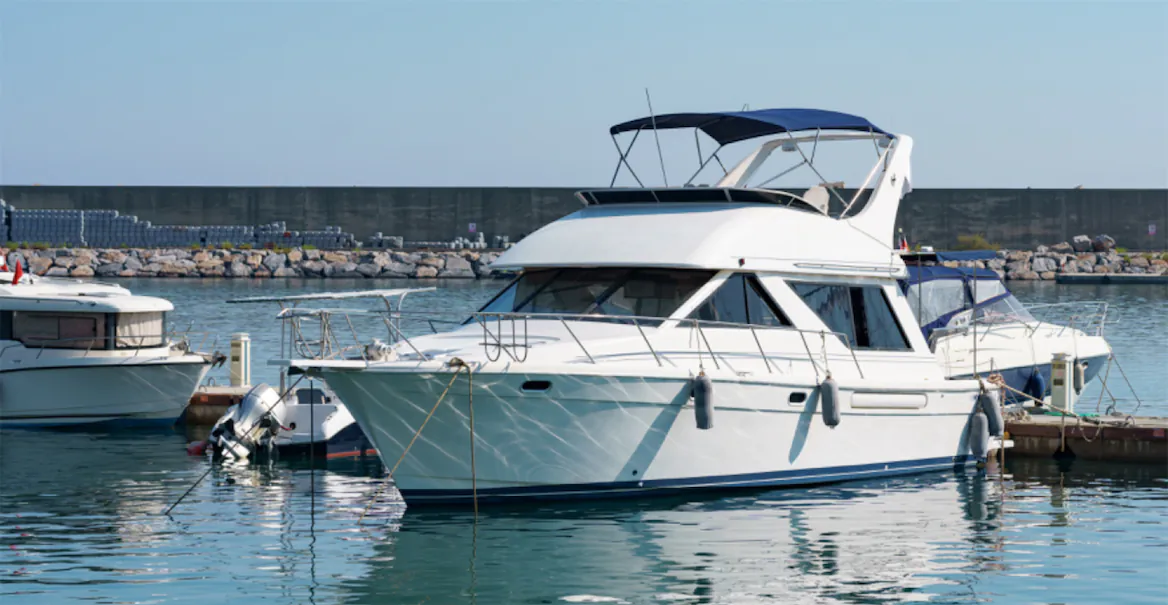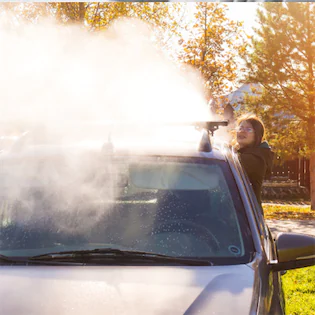Understanding Lemon Laws in General
Lemon laws are state and federal laws designed to protect consumers from defective products that fail to meet quality and performance standards. While most people are familiar with lemon laws as they pertain to cars, these laws can also apply to other vehicles, including motorcycles, RVs, and boats. In essence, lemon laws provide a legal remedy for consumers whose vehicles turn out to be lemons—those that have persistent issues despite multiple repair attempts.
The primary purpose of lemon laws is to protect consumers from defective products that fail to meet performance and safety standards. These laws ensure that consumers are not left without recourse when they purchase a faulty product. By providing a legal framework for resolving disputes, lemon laws help to hold manufacturers accountable for the quality of their products, thereby promoting consumer confidence and trust in the marketplace.
Types of Vehicles Covered
- Cars: The most common vehicle covered by lemon laws, given their prevalence and the significant investment they represent.
- Motorcycles: Often included due to their unique mechanical challenges and the critical need for safety.
- Recreational Vehicles (RVs): Given their complexity and the extensive use they endure, RVs are frequently subject to lemon law protections.
- Boats: While less commonly discussed, boats are included under California’s lemon laws, recognizing the substantial investment and potential safety hazards associated with defective watercraft.
Boat Lemon Law in California
California’s boat lemon law is part of the broader Song-Beverly Consumer Warranty Act, which is designed to protect consumers from defective vehicles, including boats. Under this law, if a new or used boat is purchased or leased with a warranty and exhibits significant defects that impair its use, value, or safety, the owner may be entitled to a refund, replacement, or compensation.
Types of Boats Covered
- New Boats: Boats purchased new with an original manufacturer’s warranty.
- Used Boats: Boats purchased with a warranty from the dealer or manufacturer.
- Different Sizes and Types: The law covers a variety of boats, from small recreational boats to larger yachts, as long as they meet the warranty and defect criteria.
Conditions for Coverage
- Significant Defects: The defects must substantially impair the boat’s use, value, or safety. Common issues include persistent engine problems, structural defects, electrical system failures, and steering malfunctions.
- Reasonable Repair Attempts: The manufacturer or dealer must be given a reasonable number of attempts to repair the defects. Generally, this means at least two attempts for serious safety defects or multiple attempts for other issues.
- Repair Time: If the boat is out of service for repairs for a cumulative total of 30 days or more within the warranty period, it may be considered a lemon.
Timeframe and Usage Limits
Timeframes
- Warranty Period: The issues must arise within the manufacturer’s warranty period. This period varies but typically ranges from one to several years from the date of purchase.
- Reporting Defects: It’s crucial to report defects as soon as they are discovered and to document all repair attempts meticulously.
Usage Limits
- Hours of Operation: Some warranties include specific usage limits, such as a maximum number of operational hours. Defects must arise within these limits to be eligible for lemon law protection.
- Owner Responsibilities: Boat owners must follow the manufacturer’s maintenance guidelines. Failure to properly maintain the boat can disqualify it from lemon law coverage.
The Process for Filing a Lemon Law Claim
Initial Steps
Documentation Needed
- Purchase Records: Keep a copy of your purchase or lease agreement, including the date of purchase, price, and details of the boat.
- Repair Records: Maintain detailed records of all repair attempts, including dates, descriptions of issues, work performed, and the name of the repair facility.
- Warranty Information: Have a copy of the manufacturer’s warranty and any additional warranties provided by the dealer.
Importance of Keeping Detailed Records
- Document all issues that arise with your boat, including the nature of the problem and how it affects the boat’s use, value, or safety.
- Record each communication with the dealer or manufacturer, noting the date, the person you spoke with, and the content of the conversation.
- This documentation is crucial for building a strong case and demonstrating that the defects meet the criteria under California’s lemon law.
Working with the Dealer or Manufacturer
Steps to Take When Contacting the Dealer or Manufacturer
- Notify the Dealer/Manufacturer: Inform them of the defects as soon as they are identified. Use written communication (e.g., email or letter) to create a clear record.
- Request Repairs: Ask the dealer or manufacturer to address and repair the defects. Ensure they understand the severity of the issues and how they impact the boat’s performance and safety.
The Process for Attempting Repairs
- Reasonable Number of Attempts: California’s lemon law typically requires that the manufacturer or dealer is given a reasonable number of attempts to repair the defects. Generally, this means at least two attempts for significant safety issues or multiple attempts for other problems.
- Repair Timeframe: If the boat is out of service for a cumulative total of 30 days or more for repairs, this strengthens your lemon law claim.
Legal Proceedings
When to Seek Legal Help
- If the dealer or manufacturer fails to repair the boat after a reasonable number of attempts, or if the boat has been out of service for an extended period, it may be time to seek legal assistance.
- Consult with an attorney specializing in lemon law cases to evaluate your situation and guide you through the legal process.
Overview of the Arbitration Process and How It Works in California
- Arbitration Requirement: Some manufacturers may require arbitration before proceeding to court. Arbitration is a less formal process where an impartial third party reviews the case and makes a binding decision.
- Submitting a Claim: File an arbitration claim, including all relevant documentation and evidence of the defects and repair attempts.
- Arbitration Hearing: Present your case to the arbitrator, who will review the evidence and make a decision.
Potential Outcomes
- Refund: The manufacturer may be required to refund the purchase price, including taxes and fees, minus a reasonable allowance for use.
- Replacement: The manufacturer may offer a replacement boat of comparable value.
- Repair: In some cases, further repairs may be mandated, although this is less common if prior repair attempts have failed.
Consumer Rights and Protections
California’s Consumer Protection Laws
Additional Consumer Protection Laws
- Song-Beverly Consumer Warranty Act: Beyond the boat lemon law, this act provides comprehensive protections for consumers purchasing various goods, including boats. It ensures that products meet the promised standards of quality and performance.
- Magnuson-Moss Warranty Act: A federal law that protects consumers by ensuring that warranties are clear and enforceable. It allows consumers to pursue legal action if manufacturers fail to comply with warranty terms.
- Consumer Legal Remedies Act (CLRA): This California law prohibits deceptive practices in the sale of goods and services. It provides consumers with the right to sue for damages if they are misled or defrauded.
Resources and Organizations That Can Help
- California Department of Consumer Affairs (DCA): Offers resources and information on consumer rights, including how to file complaints and seek assistance.
- Better Business Bureau (BBB): Provides a platform for consumers to file complaints against businesses and helps mediate disputes.
- California Attorney General’s Office: Offers consumer protection information and can assist with consumer fraud and deceptive practices cases.
- Consumer Protection Agencies and Advocacy Groups: Organizations like the Consumer Federation of California advocate for consumer rights and provide educational resources.
Warranties and Contracts
Understanding Warranties and Their Role in Lemon Law Cases
- Manufacturer’s Warranty: This warranty typically covers defects in materials and workmanship for a specified period. It is the primary protection for consumers in lemon law cases.
- Extended Warranties: Often offered by dealers, these warranties provide additional coverage beyond the manufacturer’s warranty. Understanding the terms and limitations of these warranties is crucial.
- Implied Warranties: These are unspoken, unwritten guarantees that the product will perform as expected. In California, the implied warranty of merchantability ensures that a boat is fit for its ordinary purpose.
Key Points to Look for in a Boat Purchase Contract
- Warranty Terms: Ensure the contract clearly outlines the warranty terms, including the duration and what is covered.
- Return and Refund Policy: Understand the conditions under which you can return the boat or seek a refund.
- Repair and Maintenance Obligations: Be aware of any requirements for regular maintenance and repairs to keep the warranty valid.
- Dispute Resolution Clause: Check if the contract includes a clause requiring arbitration or mediation in case of disputes.
- Legal Rights: Ensure the contract does not waive any of your legal rights under California’s consumer protection laws.









